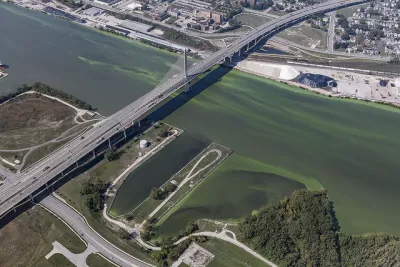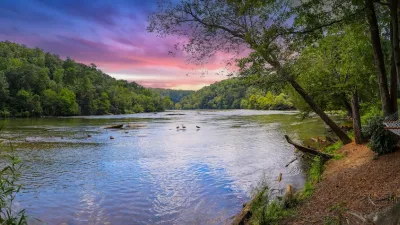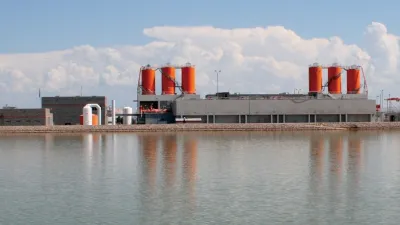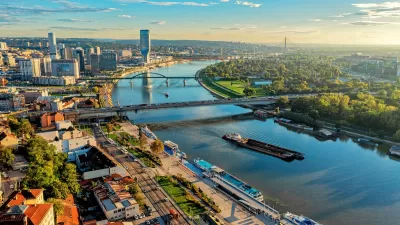An additional $1 billion in federal funding will bolster current efforts to clean polluted water sources and restore ecosystems in the Great Lakes region.

An infusion of cash from the federal government will boost efforts to restore the Great Lakes. As John Flesher and Zeke Miller report, the funding will supplement the Great Lakes Restoration Initiative, an Obama-era program that funds cleanup and restoration activities in the region. "It’s been one of the few matters on which the region’s congressional Democrats and Republicans routinely agree. They thwarted President Donald Trump’s early efforts to gut the program, which GOP lawmakers from Michigan eventually persuaded him to support."
As the nation's largest source of fresh water, the Great Lakes fueled rapid economic growth in the region, where they provide water to 40 million people. But decades of industrial uses and runoff have created toxic conditions. According to the article, "The $1 billion for the Great Lakes from the bipartisan measure enacted in November, combined with annual funding through an ongoing recovery program, will enable agencies by 2030 to finish work on 22 sites designated a quarter-century ago as among the region’s most degraded, officials said Thursday."
"The more than 6,000 projects funded under the restoration initiative also deal with some of the lakes’ other biggest problems," the article goes on to explain. "They include invasive species such as quagga mussels that unravel food chains; toxic algae blooms caused by agricultural runoff and sewage overflows; and loss of wetlands and other wildlife habitat."
FULL STORY: Biden: Infrastructure plan gives $1 billion for Great Lakes cleanup

Trump Administration Could Effectively End Housing Voucher Program
Federal officials are eyeing major cuts to the Section 8 program that helps millions of low-income households pay rent.

Planetizen Federal Action Tracker
A weekly monitor of how Trump’s orders and actions are impacting planners and planning in America.

Ken Jennings Launches Transit Web Series
The Jeopardy champ wants you to ride public transit.

Washington Legislature Passes Rent Increase Cap
A bill that caps rent increases at 7 percent plus inflation is headed to the governor’s desk.

From Planning to Action: How LA County Is Rethinking Climate Resilience
Chief Sustainability Officer Rita Kampalath outlines the County’s shift from planning to implementation in its climate resilience efforts, emphasizing cross-departmental coordination, updated recovery strategies, and the need for flexible funding.

New Mexico Aging Department Commits to Helping Seniors Age ‘In Place’ and ‘Autonomously’ in New Draft Plan
As New Mexico’s population of seniors continues to grow, the state’s aging department is proposing expanded initiatives to help seniors maintain their autonomy while also supporting family caregivers.
Urban Design for Planners 1: Software Tools
This six-course series explores essential urban design concepts using open source software and equips planners with the tools they need to participate fully in the urban design process.
Planning for Universal Design
Learn the tools for implementing Universal Design in planning regulations.
Heyer Gruel & Associates PA
Ada County Highway District
Institute for Housing and Urban Development Studies (IHS)
City of Grandview
Harvard GSD Executive Education
Toledo-Lucas County Plan Commissions
Salt Lake City
NYU Wagner Graduate School of Public Service





























